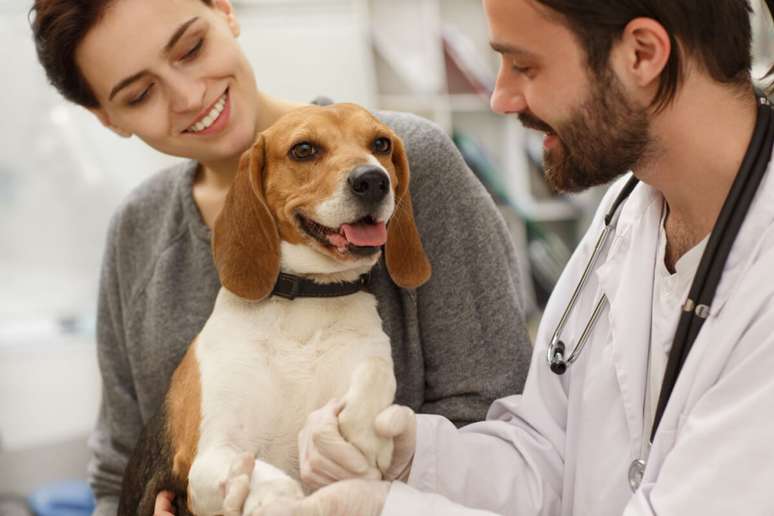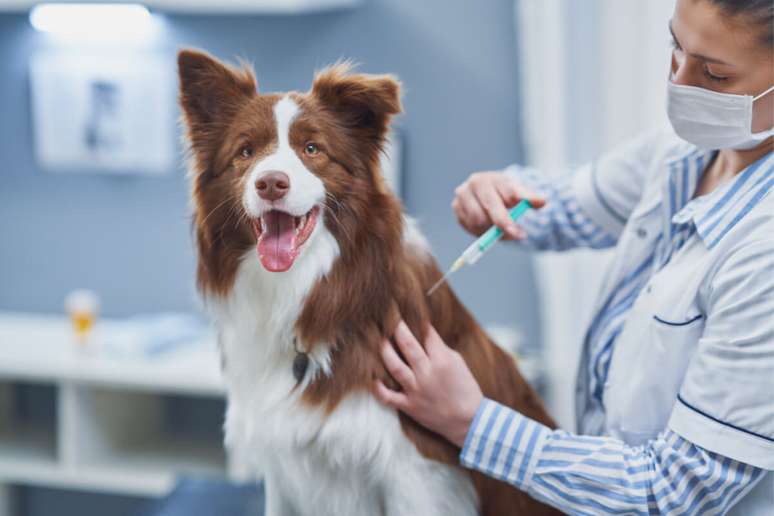Immunization is essential in preventive and responsible care, ensuring happiness and health for dogs and cats
Vaccinating dogs and cats is one of the most effective ways to protect them from a number of serious diseases, contributing to their long-term health and quality of life. Furthermore, immunization not only protects the animals themselves, but also contributes to public health by reducing the spread of zoonotic diseases, which can be transmitted to humans.
So, below, check out 9 reasons to vaccinate your dog and cat!
1. Prevention of serious diseases
Vaccines protect against illness viral and bacterial infections that can be serious or even fatal for dogs and cats. “Immunizers protect animals from various diseases, including: distemper, hepatitis, canine parainfluenza, canine leptospirosis, chlamydiosis, feline leukemia and many others that can weaken them and end up causing death,” warns Pedro Risolia, Petlove veterinarian.
2. Collective immunity
When the majority of animals in a community are vaccinated, herd immunity is created. This helps protect even unvaccinated animals, such as very young puppies or those with compromised immune systems, by reducing the spread of the disease.
3. Long-lasting protection
Vaccines provide lasting or long-term immunity against various diseases. Although a booster vaccination is required periodically to maintain immunity, it offers significant protection for a considerable period.
According to Pedro Risolia, the vaccines for dogs and for cats they are all annual, except in the case of puppies, who must receive booster doses.
4. Avoid high treatment costs
The cost of treating vaccine-preventable diseases can be very high. Regular vaccination is cheaper and less expensive than treating infectious diseases.
5. Protection of public health
Vaccines such as rabies vaccines are essential to protect not just animals. Rabies, for example, is a deadly, zoonotic disease that can be transmitted from animals to humans.

6. Guarantee for accommodation and travel
Many hotels and pet boarding services require pets to be allowed pets Keep your vaccinations up to date to keep everyone safe. Also, when traveling, some vaccines they are required for entry into certain areas or countries.
7. Contribution to animal welfare
Vaccinating your pet is part of responsible care and commitment to his well-being. petoffering you the best possible quality of life.
8. Compliance with legislation and regulations
In many regions, rabies vaccination is a legal requirement for dogs, and in some places even for dogs cats Also. Failure to comply with these rules may result in fines or other sanctions.
9. Eradication of health problems
Petlove’s expert says that some serious health problems can be eradicated in Brazil only with proper control of vaccinations. “In countries in the Northern Hemisphere, for example, many of these zoonoses no longer exist thanks to an adequate and perennial vaccination program,” he explains.
Consult a vet
It is essential to follow the vaccination schedule recommended by a veterinarian to ensure the effectiveness of the immunization. Furthermore, as Pedro Risolia explains, each case of disease is individual and, for this reason, it is necessary to consult a professional to indicate which immunizing agents pet need to receive and at what time.
Source: Terra
Ben Stock is a lifestyle journalist and author at Gossipify. He writes about topics such as health, wellness, travel, food and home decor. He provides practical advice and inspiration to improve well-being, keeps readers up to date with latest lifestyle news and trends, known for his engaging writing style, in-depth analysis and unique perspectives.





![Plus Belle La Vie Adher: That’s what you expect in an episode 330 Monday, May 12, 2025 [SPOILERS] Plus Belle La Vie Adher: That’s what you expect in an episode 330 Monday, May 12, 2025 [SPOILERS]](https://fr.web.img5.acsta.net/img/8e/0d/8e0d0b1fdc2a29bd669b347ab0baa14c.jpg)


